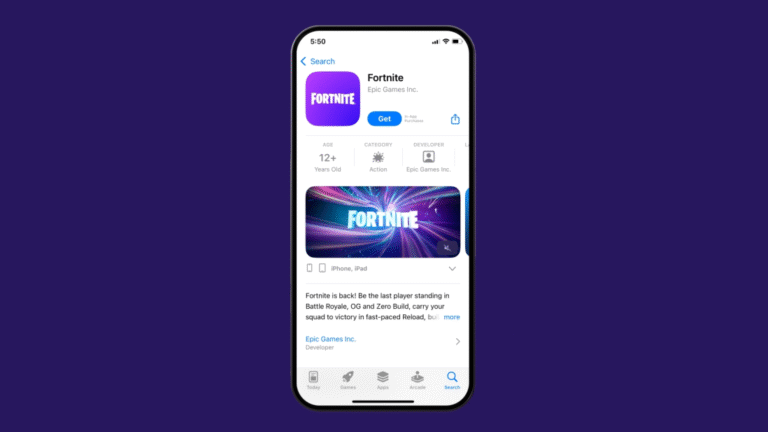Welcome to the latest edition of Week in Review (WiR), Techfullnews’ comprehensive newsletter summarizing the week’s most significant developments in the tech world. If you’ve been too swamped to keep up with the latest news, you’ve come to the right place. WiR is here to provide you with a concise recap of what you may have missed.
Teamshares: Disrupting Small Business Succession Plans
Teamshares, a New York-based startup with strong backing from venture capital, has emerged as a game-changer in the realm of small business acquisitions. Their approach involves quietly acquiring mom-and-pop shops, often at prices below market rates, but with a unique twist. Upon acquisition, Teamshares appoints a new president and allocates 10% of the company’s stock to its employees. The real game plan, according to co-founder and CEO Michael Brown, is to generate revenue through an expanding range of fintech products offered to the acquired businesses. This innovative approach capitalizes on the opportunity presented by small businesses lacking a clear succession plan.
Zepto: India’s Newest Unicorn in 2023
Zepto, an instant grocery delivery startup, has made waves by raising a remarkable $200 million in its latest funding round, elevating its valuation to a staggering $1.4 billion. This achievement stands out in an industry where many firms have faced significant challenges or failed to thrive. Zepto operates in seven Indian cities, processing a staggering 300,000 daily orders spanning everything from groceries to electronic gadgets. The company’s ambitious plans include an IPO slated for 2025.
OpenAI: ChatGPT Goes Enterprise
Building upon the viral success of ChatGPT, OpenAI is unveiling ChatGPT Enterprise, a business-focused iteration of their AI-powered chatbot application. ChatGPT Enterprise boasts “enterprise-grade” privacy and data analysis features in addition to enhanced performance and customization options, setting it apart from the standard ChatGPT. This move positions OpenAI to cater specifically to the needs of the business world, enhancing productivity and communication.
Google: BigQuery Studio for Data Analytics
Google has introduced BigQuery Studio, a groundbreaking addition to BigQuery, their fully managed serverless data warehouse. BigQuery Studio simplifies data analytics by providing a unified platform where programming languages like SQL, Python, and Spark can be used to run analytics and machine learning workloads at a massive scale, even reaching the petabyte range. Teams can seamlessly access data while enjoying enhanced controls for governance, regulation, and compliance, making it an ideal solution for enterprise-level data management.
Apple’s Upcoming Event: iPhone 15 Anticipation
Apple enthusiasts are eagerly awaiting the company’s upcoming press conference scheduled for September 12. The event will once again take place at Apple Park in Cupertino. Anticipated as the centerpiece of the event is the unveiling of the iPhone 15. Additionally, expectations include the introduction of the Apple Watch Series 9 and a sneak peek at the Vision Pro, Apple’s AR headset, set to launch in 2024.
Google Flights: Insights for Smart Travel Booking
Google Flights is enhancing the travel booking experience by rolling out a new feature that aids users in determining the optimal time to book their flights. Leveraging historical trend data, this feature provides insights into when ticket prices have historically been lowest for selected destinations on specific dates. In some instances, Google will even offer refunds if fares decrease before departure, ensuring travelers make informed decisions.
Brazilian Phone Spyware Breach
A Portuguese-language spyware known as WebDetetive has been implicated in compromising over 76,000 Android phones, primarily in South America, with a significant focus on Brazil. WebDetetive is the latest phone spyware company to fall victim to hacking. Anonymous hackers exploited security vulnerabilities to compromise WebDetetive’s servers and access user databases. This breach raises concerns about the security of personal data and privacy in the digital age.
Amazon Adjusts Shipping Fees
Amazon is modifying its shipping fee policies, increasing the minimum for free shipping to $35 for customers without a Prime membership in select regions. Previously, the minimum for free shipping stood at $25. Amazon clarifies that this change is being tested on a regional basis and that all users within a specific region will encounter the same free shipping threshold.
Babylon Health: Financial Struggles and Restructuring
Babylon Health, a London-based telehealth startup previously valued at nearly $2 billion and backed by the founders of DeepMind, has faced a turbulent financial journey. The company’s U.S. shares became worthless, leading to insolvency. This week, the UK subsidiary formally entered administration while simultaneously selling a significant portion of its assets to eMed Healthcare UK, a new subsidiary of U.S. company eMed.
EU Empowers Users to Reject Algorithmic Manipulation
Internet users in the European Union are witnessing a significant shift in their experience on mainstream social networks. Thanks to the bloc’s Digital Services Act, users on platforms like Facebook, Instagram, TikTok, and Snapchat can now easily decline “personalized” content feeds based on AI-driven algorithms. Instead, they can opt for a more straightforward news feed, displaying posts from friends in chronological order. This empowers users to take control of their online experience and opt out of algorithmic manipulation.
If you’re looking for engaging podcasts to fill your hours, TechCrunch offers several options that cover a range of topics, from the intricacies of successful leadership to the power of collective intelligence and digital asset management. These podcasts provide valuable insights and interviews with industry experts, making them perfect for the workday commute.








